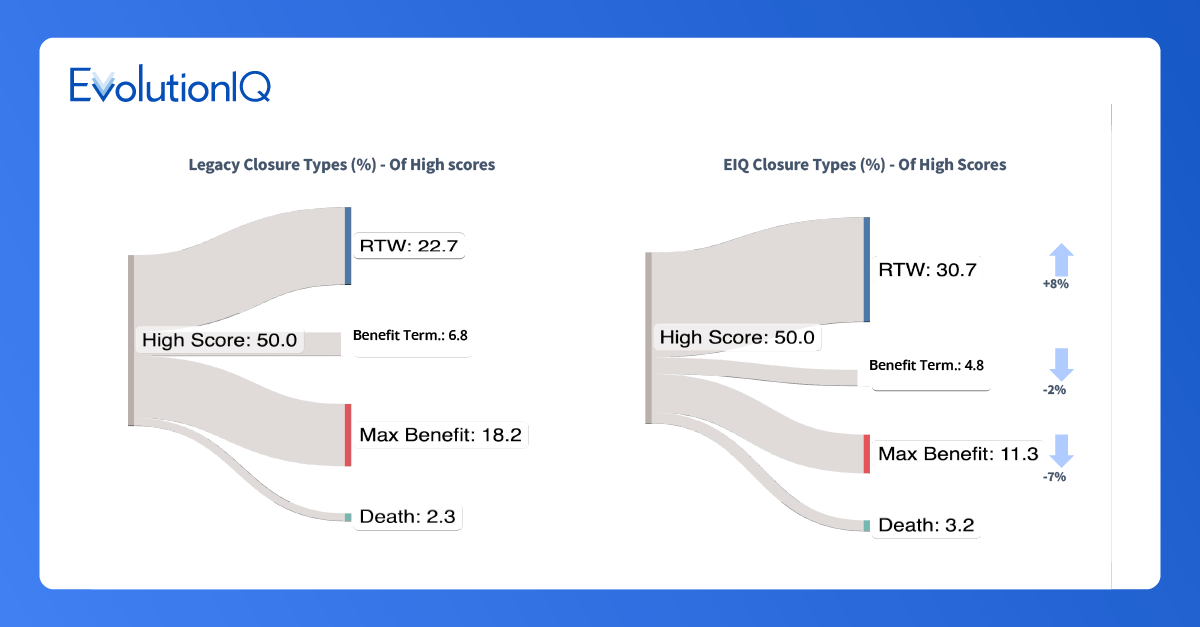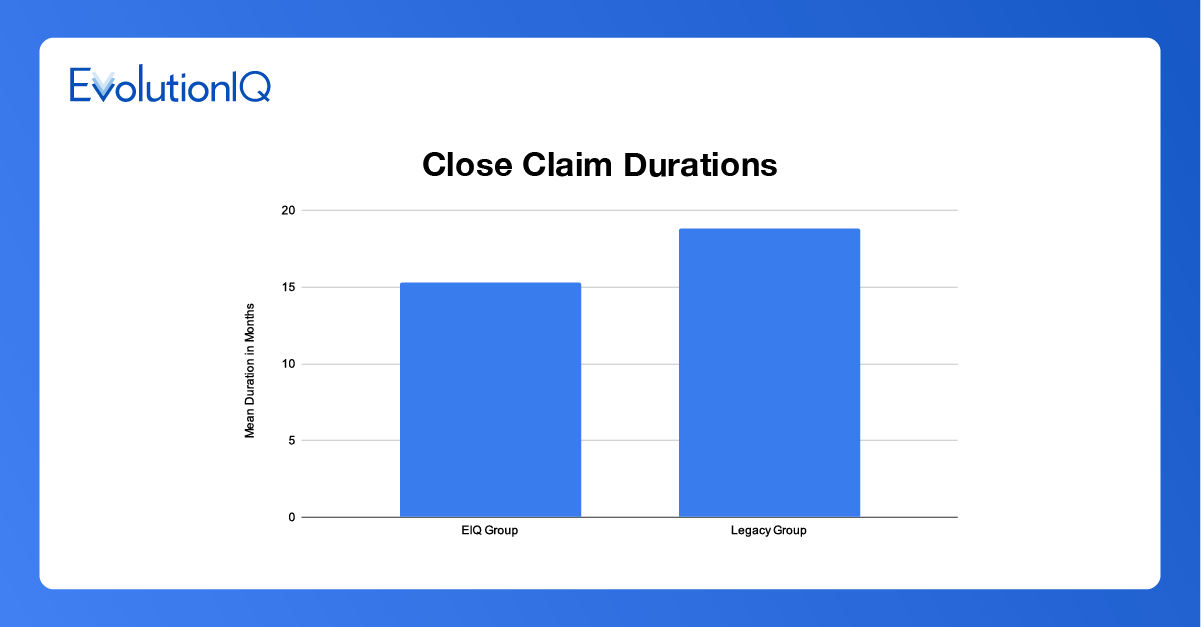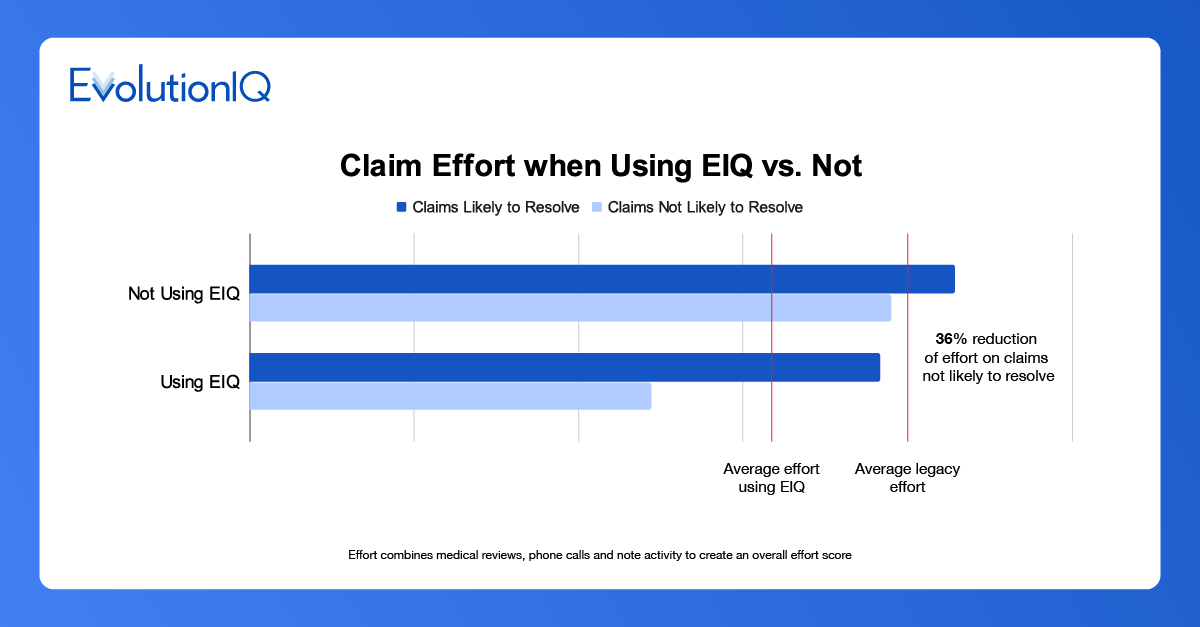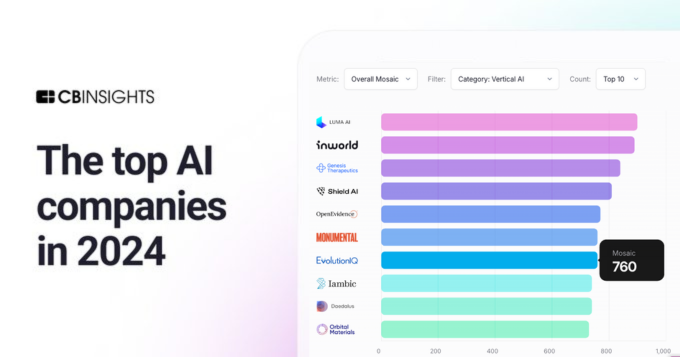One of the most eye-opening features of AI-powered claims guidance is its ability to drive dramatic, measurable, and consistent results across a wide array of insurance lines such as Group and Individual Disability, Workers’ Compensation, and Property & Casualty. And the most-watched metric is whether AI is helping more sick or injured people get their lives back on track and both return to work – and do so sooner.
New data from a major Individual Disability (IDI) US carrier shows just that. In its first use of EvolutionIQ‘s Claims Guidance for IDI, there has been a 35% increase in sick or injured people returning to work. And they’re doing it on average 3.5 months sooner when compared to the standard way insurers handle claims, which relies on a diary-based review cadence that too often results in examiners being too early – or too late – to be most effective on a claim.
A key factor in these results is that claims examiners are no longer wasting precious time reviewing or investigating stable claims that are not yet ready for examiner attention. The IDI carrier slashed the amount of wasted effort by 36% – which meant more time could be spent on helping claimants RTW.
More People Returning to Work
The data comes from an A/B test in which the carrier had the same set of claims examiners handle half of their claims using their legacy processes – and half of their claims using EvolutionIQ. Claims were randomly selected for each group.
With EvolutionIQ, there were more of the kinds of closures that anyone covered by disability insurance wants to see: Moving from being sick or injured to getting their life back on track, removing all of the associated stress and worry, and returning to work. The chart below shows a 35% lift in RTWs when using EvolutionIQ claims guidance vs using legacy processes. For a claimant, an RTW is a win because they’re healthy and back on the job. And for examiners, every RTW is a win because it means they’ve made a real difference in someone’s life.

Bottom line: Closed claims are of better quality with EvolutionIQ.
Sick & Injured Employees Are Back on Track Sooner

The increase in RTWs is also happening much faster using EvolutionIQ. As the chart below shows, claim durations using our claims guidance platform dropped by 3.5 months on average compared to the group using legacy methods. A key driver of this reduction is the way in which the AI partners with examiners and alerts them about claims that can RTW at their earliest potential, which is much sooner in the claims review cycle when compared to legacy processes. It’s a double win as employees get their lives back on track sooner – and examiners are freed up to move onto the next claims and help even more people on their recovery journey.
Bottom Line: Claimants get back to work faster when insurers use EvolutionIQ.
AI Helps Examiners Focus Their Time & Effort on RTWs

And these results are achieved without overwhelming examiners. In fact, they require less work than what was done with the legacy process. Using EvolutionIQ examiners use less effort to get a successful RTW – and thereby close the claim – with effort calculated by combining time spent on medical reviews, phone calls, and note activity to create an overall effort score. The reduced effort creates a snowball effect of positive outcomes: claimants in need get more examiner attention, each examiner can help a larger volume of sick or injured employees on their recovery journey, and complex claims can be addressed much earlier in the process.
The dark blue lines in the chart below show the effort reduced on claims likely to close – which dropped by 22%. The light blue lines show claims that are unlikely to close soon – such as claims that are waiting on medical data, the claimant is still in a recovery phase, or other factors are at play that make the claim stable. For every one of these stable claims that an examiner investigates, it’s wasted time that could’ve been spent on more complex claims or helping people RTW. As the AI-powered platform guides examiners away from these claims, examiner effort is reduced by a whopping 36% using EvolutionIQ.
Bottom line: EvolutionIQ helps examiners work smarter, not harder.


